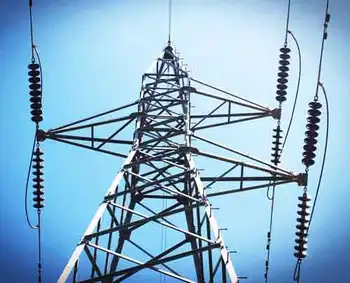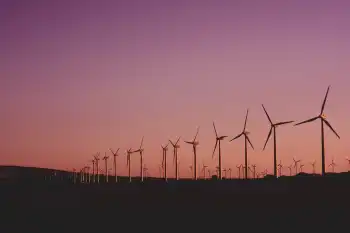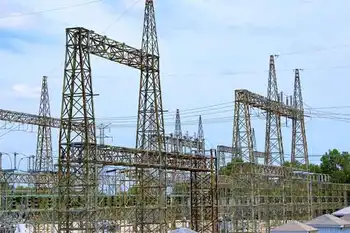Nigerians weary of power outages
By AllAfrica.com
Substation Relay Protection Training
Our customized live online or in‑person group training can be delivered to your staff at your location.

- Live Online
- 12 hours Instructor-led
- Group Training Available
Today, Nigeria's socio-economic development has been grounded, as a consequence.
There is hardly any facet of national life that has not been blighted by the Federal Government's abysmal failure to generate, transmit and distribute sufficient electric power to meet the industrial, educational, technological and domestic needs of the people.
Repeatedly, Nigerians have been promised by successive governments over the last five decades that the embarrassing power outage crisis would soon be a thing of the past.
Countless targets have been set, but have all remained unrealized. Military rulers, who seized power through coups d'Ètat and paraded themselves as self-appointed messiahs on rescue mission, failed woefully to resolve the power problem - after staying in power unconstitutionally for 30 years and ruling with maximum, unchecked powers. Nigerians had looked forward to finding relief at last with the return of a constitutional democratic government in May 1999. Ten years into uninterrupted democratic rule, that hope remains dashed.
The Peoples Democratic Party - after one decade in power, at the federal level and in the majority of states - is clearly running out of excuses for its inability to supply such a basic economic commodity as electricity. Incredibly, the whole nation still runs on private generators in late 2009. The Federal Government itself indeed voted billions of naira in the current budget for the purchase and servicing of stand-by generators - a tragic admission of its lack of confidence in its own ability to deliver on the promise of ending the chronic blackouts nationwide.
Nigeria must be about the only country in the world, especially given its immense resources, afflicted with acute power outage all-year-round. It is unthinkable that any serious-minded sovereign state in the 21st century - the Information and Knowledge Age - will allow such a situation to linger. But the Nigerian government - judging from its actions and attitude - does not care. Only platitudes and perfunctory, meaningless motions continue to flow from public office holders and policy makers. Put simply, the political class and public bureaucracy see the indefinite blackouts in which the country is trapped as 'business as usual'.
No modern nation should accept such incompetence, lethargy and irresponsibility. Everything is tied to the capacity of the country to provide adequate power supply for its socio-economic needs in a keenly competitive knowledge-driven world. The cost of the perennial darkness in the land is prohibitive: it has stunted scientific research and technological growth. The economy is in a coma, as the real sector has long remained paralyzed. Critical industries like cement and steel production depend heavily on electricity as a major input.
The blackouts have crippled such industries, without which the country's technological takeoff is a pipe dream. Frustrated by endless nightmare of operating without public power supply, more manufacturing firms are succumbing to the temptation to move their production plants across the borders to neighbouring countries with stable power supply, such as Ghana or even Benin Republic. Implication: more unemployment for Nigerians and colossal loss of tax revenues.
The absurd concentration of private generators within our nation space has also meant, among other things - apart from obvious cost implications for homes and businesses - air, water and soil pollution, noise pollution and colossal loss of foreign exchange.
The effects of environmental pollution arising from Nigeria's unusual per capita consumption of private generators - it must be the highest in the world - are alarming. Cases of whole families being wiped out in their sleep by a generator whose exhaust fumes suffocated the victims have been fairly common. In a country with severe public health disabilities and high fatalities among infants, children and mothers, and a life expectancy of less than 50 years, to add to the health hazards of the citizens through massive pollution caused by private generators is positively wicked.
Like his immediate predecessor (Olusegun Obasanjo), President Umaru Yar'Adua has missed several deadlines he himself set to tackle the power crisis. His promised state of emergency in the sector has not taken off, over two years behind schedule. Nigerians now pin their hopes on Yar'Adua's scaled-down promise of 6,000 megawatts of power supply by December 2009 Though a pitiable output for a country of Nigeria's size and current power needs, it would be a modest starting point out of the present disgraceful crisis in the sector.
But what prospects are there that this administration will keep its word, come December 31 - just three months away? Just recently the Minister of State for Power, Nuhu Wya, claimed in Kano that rehabilitation of existing power plants and construction of new ones had already raised the nation's generating capacity on paper to about 5000 megawatts on paper. With transmission, distribution and other difficulties, however, only 2,400 megawatts is currently available for distribution through the national grid. He also expressed concern about the likely impact of continued militant attacks on gas pipelines which feed many of the gas-fired power stations - one reason, he said, why the success of the amnesty program in the Niger Delta is critical.
Is the stage being set for an excuse for yet another embarrassing failure by a sitting president to keep his word to end the hellish power situation in the country? Nigerians should now accept no further excuses. The price they have had to pay for allowing the political class to continually bungle the power sector-rescue plan is now unsustainable.
Part of the problem has been laziness in re-thinking the strategic options available for resolving the crisis. Why the fixation, for example, on diesel and gas-fired power stations? Is it not obvious that a better approach should focus on the entire range of options - including coal (for a phased period, being a dirty fuel), hydro, solar, wind and even nuclear, in addition to gas (a cleaner and cheaper fuel) and diesel? One advantage of such a multi-option strategy is that dependence on any one region or fuel will be avoided, thus reducing the impact of sabotage from militants or other risks.
If this government does not give Nigerians 6,000 megawatts of public power supply by the deadline it has given itself - i.e. December 31 - it would have lost its moral right to remain in office. It should have the decency to quit.











